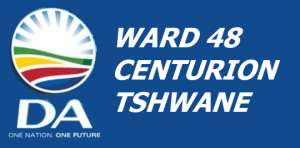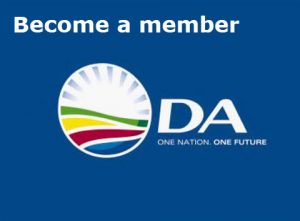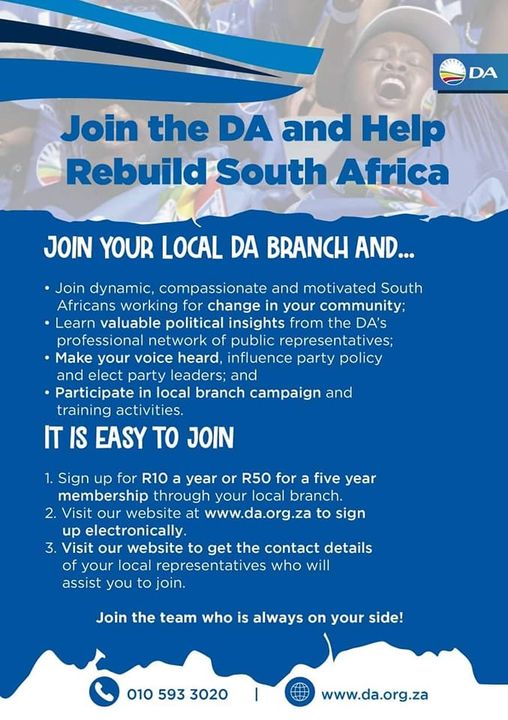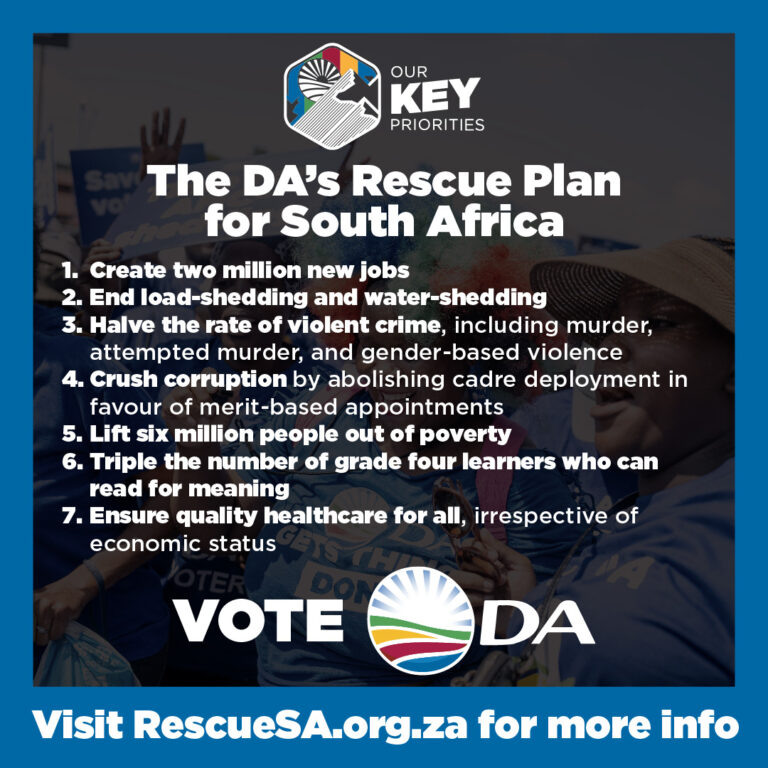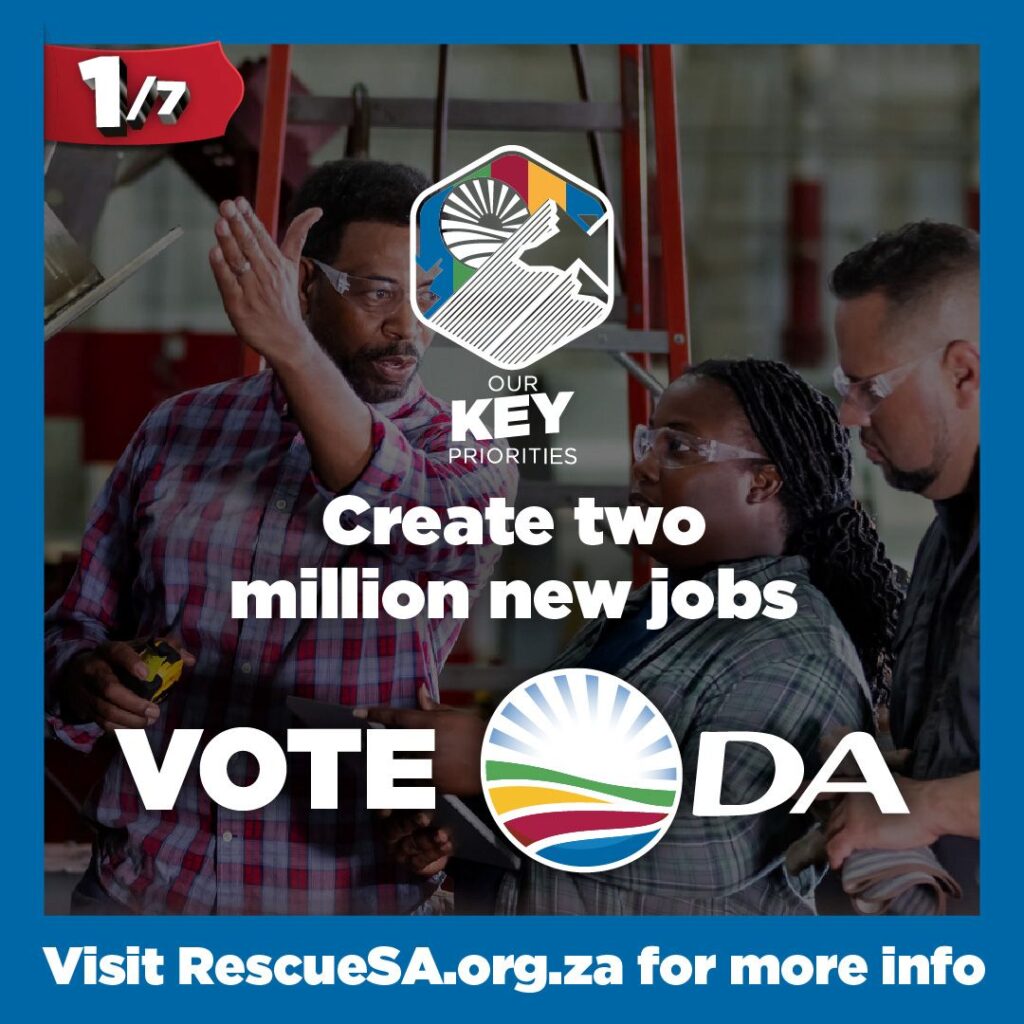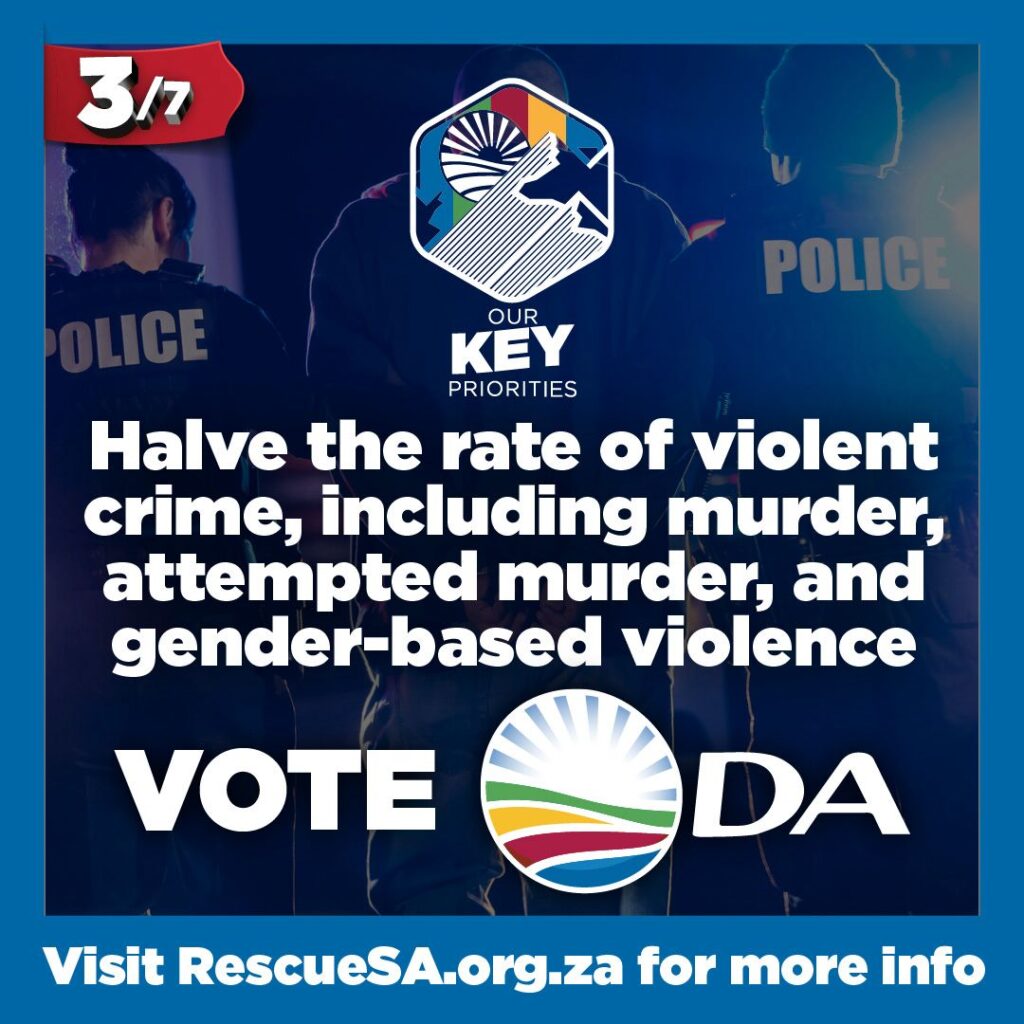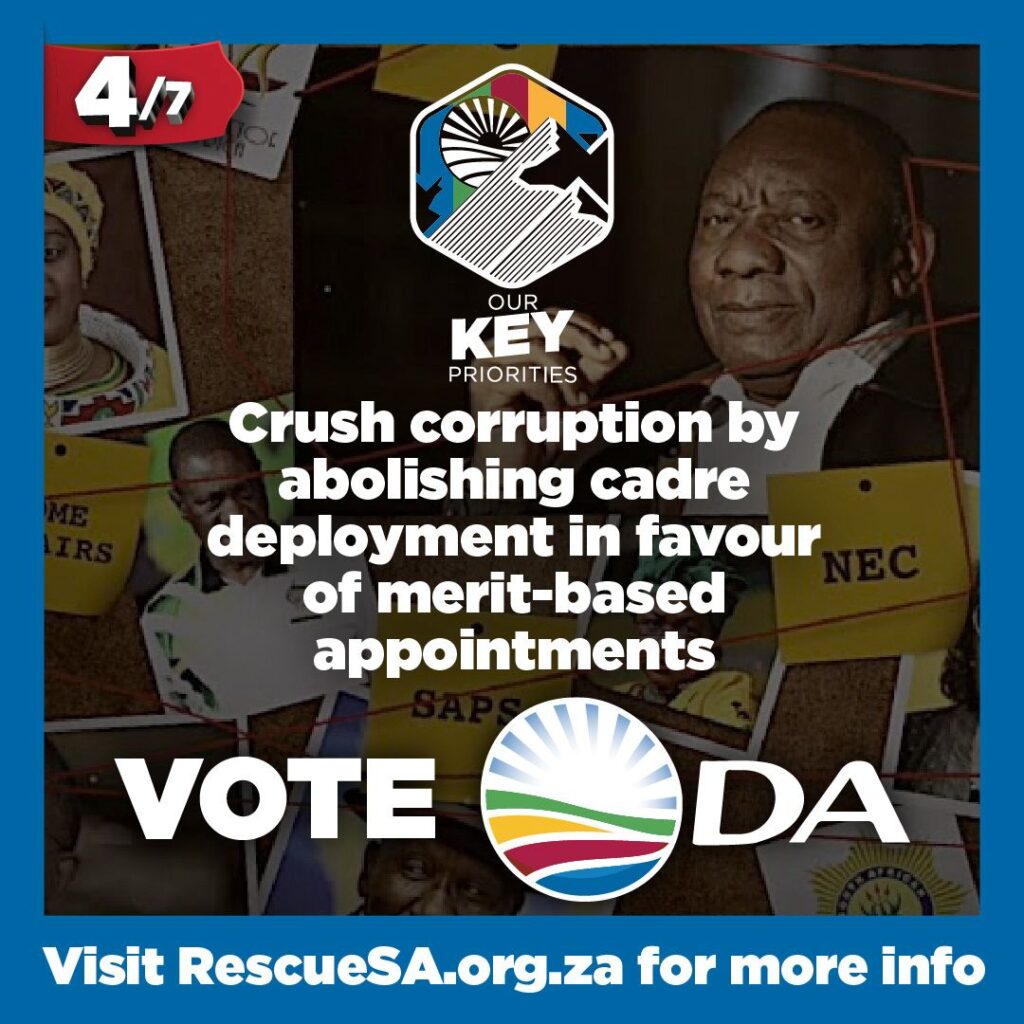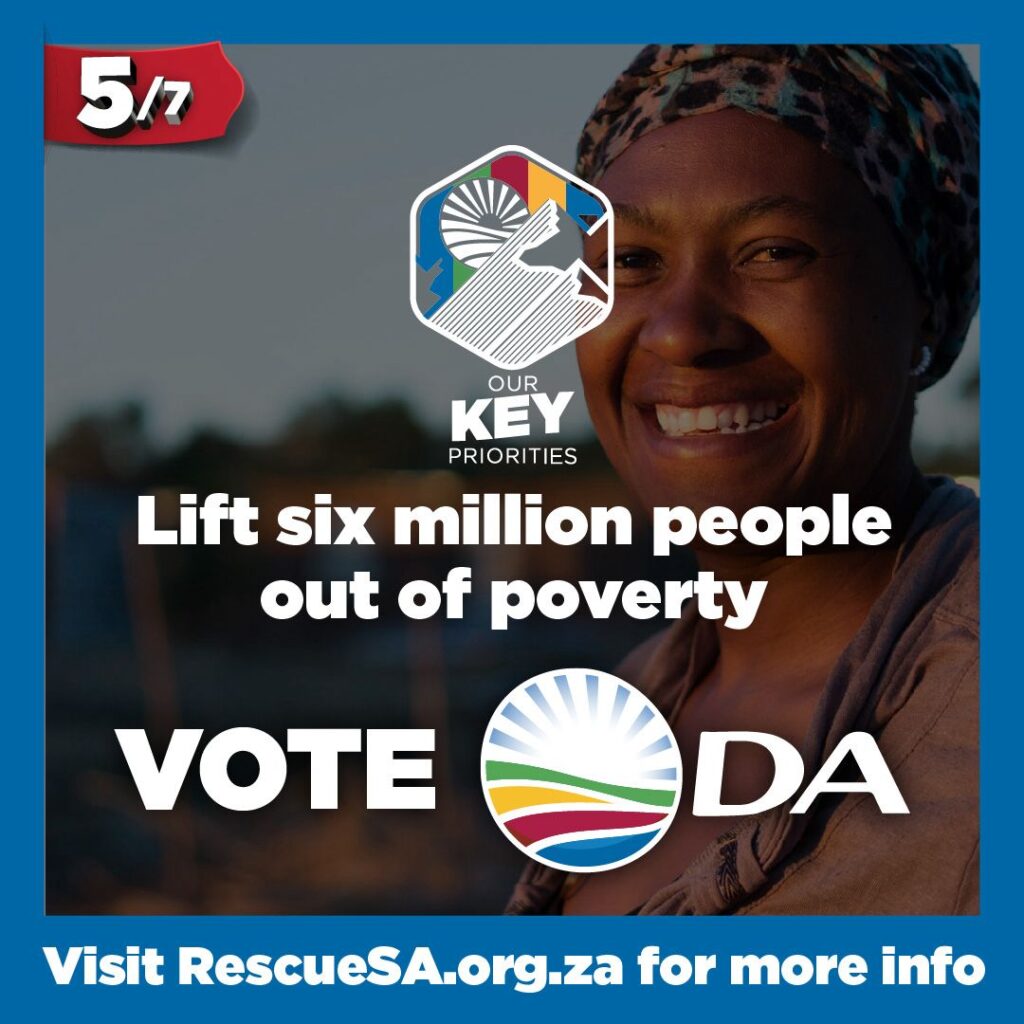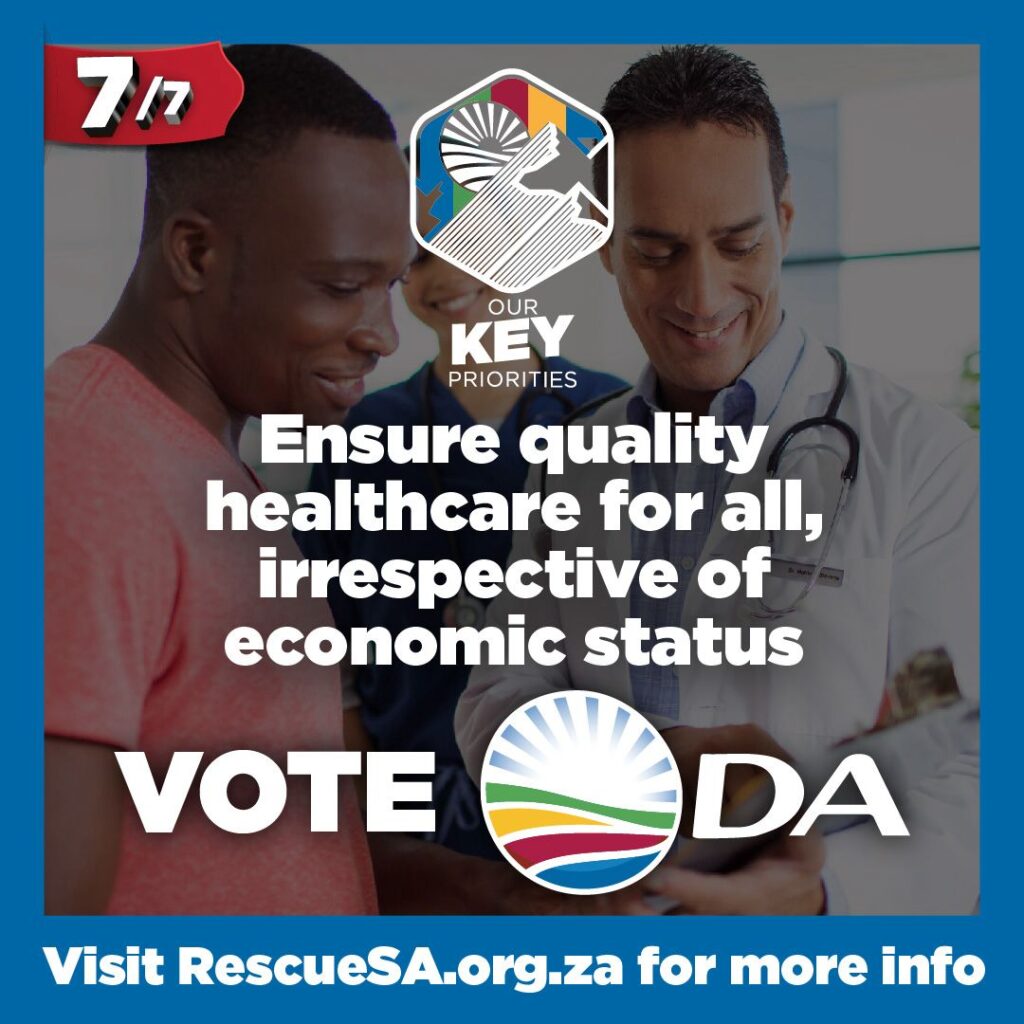JOB DESCRIPTION: DEMOCRATIC ALLIANCE COUNCILLOR
This job description should be read with the Democratic Alliance Code for Public Representatives and Appendix A(4) to the Regulations for Nomination of Candidates.
JOB TITLE
- Ward Councillor
- Proportional Representation (PR) List Councillor
INTRODUCTION
The role of Democratic Alliance councillors is set out in this job description. Councillors are elected representatives of all the people in their allocated area. The job has four key results areas:
- To fulfil party political duties and represent local voter and community interests
- To champion and implement Democratic Alliance policy
- To participate in learning & development and performance management processes
- To (where in office) fulfil agreed executive functions
The Councillor job description has many areas. So, to give Councillors specific focus and to manage workload, each Councillor agrees a set of annual objectives with leadership. This is called the Performance Development Management System (PDMS) annual review. This job description covers the full scope of what a Councillor role contains. Within this, specific objectives will be shaped for individual Councillors based on local needs.
REPORTING
There are different spheres of government and party structure. Councillors are responsible for being clear on their leadership structure and who they report to.
- Councillors report to the Caucus Leadership in respect of Council duties.
- All Councillors report to the Constituency, Regional & Provincial Leadership in respect of Party Political Duties.
JOB OBJECTIVE
To promote the principles, policies, and brand of the Democratic Alliance within the Council and the Community by:
- Supporting efforts of the Party to gain office
- Representing local interests and needs within governing processes
- Demonstrating that the Democratic Alliance is the best option for excellent government
- Being for the people and with the people
DETAILED KEY RESULTS AREAS:
FULFILL PARTY POLITICAL DUTIES:
- Develop Positive Personal and Party Profile
- Develop Local Knowledge
- Develop Strong Relationships & Networks
- Fundraising and Contributions
- Elections, Campaigns & Recruitment
- Helping Voters and the Community
“We will continue to win elections because we care and will show that we are for the people and with the people”
Party & Political Duties
Develop Positive Personal and Party Profile: Councillors are responsible for developing a positive identity both publicly and personally. This includes within the Party, the municipality… as an individual, and as a member of the Democratic Alliance. Specifically:
- Driving local issues to improve the local community
- Promoting case studies of the DA making a positive difference
- Develop a strong, positive reputation for the DA Party
- Establish a strong personal reputation for sharing the DA vision
- Develop the trust of party members, leaders, officials and citizens
- Present a positive image to the community
- Be a law‐abiding role model
Develop Local Knowledge: Councillors are the DA’s presence at grass roots. They need to develop, demonstrate, and apply local knowledge. This needs to be shared with other spheres of government, where needed. It is a Councillor’s responsibility to develop excellent knowledge of the community – and to have a deep understanding of:
- Local citizen issues, concerns and priorities
- Local communities civil society groups and their agendas / priorities
- Local government, including Council policies, rules & procedures
- Ward profiles & plans – and how to participate in their development
- Local municipality functions & services, and how well they perform
- Local DA branch and constituency operations and people
- The local opposition parties (their people and policies)
- How to access and apply municipal by‐laws
Develop Strong Relationships & Networks: Councillors should develop strong relationships within the caucus, the party, and their municipality. Councillors need to develop excellent relationships with the local community and civil society in their ward or any other allocated areas. Councillors also need do this in in any portfolios they are aligned to. Specifically, Councillors should:
- Develop excellent community relationships
- Develop strong relationships with local contacts, advisors and experts
- Develop networks between government spheres & party structures
- Align to and support Caucus spokespersons ‐ sharing information
- Share contacts and networks with DA peers
- Share information best practices (e.g. inter‐Caucus best practice)
Fundraising and Contributions: The Democratic Alliance depends upon fundraising activities for its continued existence and growth. The more funds that are raised, the more budget is available to support excellent Party operations. Councillors need to look for appropriate opportunities to raise funds, including:
- Paying fees and party contributions1
- Organising and supporting fundraising events and campaigns
- Nurturing DA supporters who may be prepared to donate
- Notifying fundraising teams where donors need leadership contact
- Complying with the DA fundraising policies and procedures
Elections, Campaigns & Recruitment: Successful electoral campaigns and activist recruitment are vital to growing the Democratic Alliance. Councillors must take part and encourage participation in all branch, constituency, regional, provincial or national campaigns and activities, including:
- Participating as required in by‐elections and national election campaigns
- Canvassing voters to solicit ongoing and new support for the DA
- Distributing pamphlets and newsletters where necessary
- Growing DA voter support and strong DA Branches
- Recruiting and mentoring new members, candidates and activists
- Suggesting activities to people so that they get more involved
- Speaking at events, public meetings and on radio as required
- Supporting and organizing “DA leadership events”
- Visiting and / or inspecting local institutions and organizations
- Holding regular “information tables”
- Contribute to planning and delivering the constituency business plan
Helping Voters and the Community: Whether in opposition, or in office, the Democratic Alliance is there to champion and support individuals in their relationship with government. It is a Councillor’s duty to be for and with the community ‐ attending conscientiously to voter queries and community representations. This includes;
- Being accessible to voters in person, by telephone, email
- Providing accurate and timely feedback to queries & representations
- Actively progressing issues raised by individuals and groups
- Reporting back to the community (via meetings, newsletters, etc.)
- Ensuring voter & community information is recorded in party systems
- Attending community meetings such as civic and rate payers organizations, religious and sporting bodies and action groups
1 Fees and Contributions are detailed in the Regulations for the Nomination of Candidates
CHAMPION DEMOCRATIC ALLIANCE POLICY:
- Create an Open, Opportunity Society for All
- Know and Abide by Constitutions
- Understand Local Government
- Champion the Local Government Manifesto
- Participate in Planning: ‘Local is Lekker’
“We will create our future vision, which is an open, opportunity society for all”
Championing
DA Policy
Create an Open, Opportunity Society for All: The Democratic Alliance is committed to creating an open, opportunity society for all. It is essential that Councillors understand, share and support this vision. Members of the DA share the same core liberal democratic beliefs. It is a Councillor’s responsibility to understand and communicate this vision for the future, including:
- Be clear on what an Open Opportunity Society for All means
- Passionately share this vision within your local community
- Understand how the vision translates into political policies
- Help others within and beyond the DA understand
- Identify and provide help where the vision is misunderstood
Know and Abide by Constitutions: DA Councillors operate and exercise freedom of speech within the democratic processes of government. This requires familiarity with relevant constitutions, legislation, policies, and processes. It is a Councillor’s responsibility to have a working knowledge of the South African government and party structures and to abide by their rules. This includes understanding and abiding by:
- The South African Constitution (esp. Chapter 7)
- South African Governing Structures & Processes
- The DA Federal Constitution
- The Relevant DA Provincial Constitution
- The DA Party Governing Structures & Processes
- The DA Values, Attitudes and Behaviour for Public Representatives
- The DA Code of Conduct for Public Representatives
- The DA Regulations for the Nominations of Candidates
- The DA Councillor Job Description
Understand Local Government: Councillors operate specifically at local government level. So it is essential DA Councillors are well versed in local government functions. It is a Councillor’s responsibility to develop an awareness of the scope of municipal and provincial responsibilities. This particularly includes the basic services municipalities are committed to deliver. Councillors should understand Local Government Acts including:
- The Municipal Systems Act 32 of 2000
- The Municipal Structures Act 117 of 1998
- The Municipal Finance Management Act 56 of 2003
- The Property Rates Act 6 of 2004
- The Municipal Demarcation Act 27 of 1998
- The Municipal Electoral Act 27 of 2000
- Any by‐laws applicable to your municipality
Champion the Local Government Manifesto: DA policy defines an approach to delivering excellent local
government. This is described in the Local Government Manifesto. It is a Councillor’s responsibility to promote these policies and, where the DA has won office, to implement and govern according to them. This includes:
- Understanding the DA Local Government Manifesto
- Knowing what other party policies are and how they differ from the DA
- Being able to give a compelling case for why DA policy is best
- Understanding the by‐laws applicable to your municipality
Participate in Planning ‘Local is Lekker’: It is a responsibility of a Councillor to understand how local government policy and plans are formulated and approved. This will help healthy local participation in creating governing approaches that suit individual areas. This includes understanding how to access information on current policies and knowing how to source support for clarification on policy issues, and:
- Understanding local government planning2 and budgeting processes
- Understanding your municipality budget and how money is spent
- Understanding the service levels your municipality achieves
- Seeking opportunity to participate in planning, where appropriate
- Understanding the process for creating by‐laws
- Understanding how to challenge local policies ‐ within the process
- Learning, Development and Performance Management
LEADERSHIP AND DEVELOPMENT:
- Excellent Attendance & Participation
- Participation within the PDMS Process
- Learning, Development & Training
- Leadership and People Management
- Living our Values, Attitudes and Behaviours
“All of us will strive to fulfil our greatest potential ‐ so that we, and others, can deliver with excellence”
Leadership & Development
Attendance & Participation: Attending political meetings and performing well is central to a Councillor’s performance. It is a duty to attend the meetings of all party or government structures you belong to and are expected at. Structures may include the Party, Constituency, Ward, Community, Caucus, Council, and other relevant bodies you are a delegate or representative for. Councillors should:
- Be very clear on the meetings you are expected to attend
- Play a proactive role ‐ ask questions that elicit original, useful insight
- If representing a group, provide timely informative debriefing
- Escalate issues efficiently and objectively to whips or leadership
- Frame motions and statements that progress the DA agenda3
- Study agendas and briefing papers in advance of meetings
- Provide robust, constructive challenge to opposing parties, if needed
2 Particularly the Integrated Development Planning (IDP) Process, and Ward Planning
3 Seek or follow guidance from the relevant Whip or Spokesperson if unclear on the approach
- Deliver articulate, persuasive speeches when required
- Execute any actions decided during the meeting efficiently
Participation within the PDMS Process: The Democratic Alliance believes that everyone should strive for excellence and personal development. To support this Councillors participate in an annual Performance Development and Management System (PDMS). Additionally, objective setting helps leadership shape your specific role. Councillors
are responsible for proactively participating within this process. This involves jointly setting and reviewing objectives and targets with caucus leadership on an annual basis, and includes:
- Meeting the process timetable and deadlines
- Meeting targets to the satisfaction of leadership
- ‘Going the extra mile’ to deliver with excellence
- Taking development points objectively
- Using feedback to create opportunities to grow
Learning, Development & Training: As the Democratic Alliance grows it needs to professionalise and develop skills, especially where new and inexperienced politicians are entering government, but also for everyone as best practice
is developed. Councillors are responsible for keeping up with changes and for developing their skills and abilities. It is a Councillor’s responsibility to take a proactive approach to learning and development, including:
- Attending training and learning events when nominated
- Identifying personal development needs from PDMS reviews
- Maintaining a record of training and a personal development plan
- Taking a proactive and motivated approach to personal development
Leadership & People Management: Quality leadership is essential to Democratic Alliance success. Councillors are responsible providing leadership to party activists, and members, and may hold additional leadership roles as objectives within their PDMS e.g. Caucus leader / Whip etc.. People Management involves:
- Motivating all members to strive for excellence in all that they do
- Providing expertise, knowledge and support, to help others succeed
- Driving attendance, participation, discipline & integrity in structures
- Constantly communicating and cascading plans, activities & direction
- Ensuring plans, objectives and people are aligned to DA policy
- Managing workload to get the best from resources
- Managing PDMS reviews (if holding an appropriate leadership role)
- Providing constructive feedback on performance, if appropriate
- Demonstrating compassion and respect when managing people issues
- Leading by example
Values, Attitudes and Behaviours: The Democratic Alliance has defined values, attitudes and behaviours that are central to its culture and identity. It is the responsibility of all Councillors to endorse and demonstrate the values, attitudes and behaviours of the Democratic Alliance (integrity, striving for excellence, accountability, teamwork, embracing diversity and dedication to the cause). This includes:
- Knowing and living the DA values, attitudes and behaviours
- Encouraging others to adopt values, attitudes and behaviours
- Rewarding positive behaviour both informally, and formally
- Advertising DA values, attitudes and behaviours beyond the Party
FULFIL EXECUTIVE FUNCTIONS
(MAYORAL / MAYCO EXECUTIVE COUNCILLORS4)
- Good Citizen Relations & Communication
- Delivery of Basic Services
- Plans & Budgets Aligned to Policy
- Performance Management and Reporting
- Assets & Infrastructure
- Excellent Project & Programme Delivery
- Well Managed Staff and Agencies
- Strong Municipal Back Office Processes
- Effective Media & Communication of Successes
“We will prove that the DA represents the best option for excellent government”
Municipal
Government
Citizens and Communication: It is a Councillor’s responsibility to ensure that the municipality engages effectively with citizens where the Democratic Alliance is in office. This includes:
- Ensuring a strong citizen service process for managing interactions
- Ensuring excellent municipal communication with citizens
- Establishing a citizen charter with a commitment to service levels
- Ensuring there is a functional and updated website
- Ensuring citizen access to appropriate municipal information
Service Delivery: The Democratic Alliance is committed to prioritising resources to achieve strong basic service delivery. This is central to proving that the Democratic Alliance is the party in South Africa that governs best. When in elected office responsibilities include:
- Relentlessly driving improved basic service delivery
- Prioritising budget allocation on basic service delivery
- Managing down service delivery back logs
Plans, Budgets and Policy: Executive councillors need to make sure they participate in a focused and strategic way on implementing DA Policy. This involves understanding and leading the municipal IDP planning and budgeting processes. It is a responsibility to:
- Ensure that the Municipal Budget Balances
- Ensure IDP Plans and Budgets are aligned to DA Policy
- Timely publication of quality mandatory plans and budgets
- Eliminating and reducing unfunded mandates
- Ensure effective Ward contributions to planning cycles
- Ensure quality municipal policies and procedures, aligned to DA policy
Performance Management and Reporting: Transparency and openness are core values of the Democratic Alliance. It is a responsibility to ensure that were the Democratic Alliance is in office there is rapid, accurate and objective
4 Executive Management responsibilities only apply directly where the DA is in office, and are the overall responsibility of the Mayor, who may cascade responsibilities in the form of PDMS objectives to Members of the Mayoral Committee or other Councillors within the Caucus, as is appropriate
reporting to ensure that resources are made available in areas of difficulty, decisions are effective and swift ‐ and that opportunities are recognised and taken. This includes responsibility for:
- Timely and accurate reporting to Provincial & National government
- Accurate financial accounting and a punctual annual close
- Ensuring or working towards a clean Audit
- Participation in DA Municipal Performance Healthchecks
- Ensuring an effective performance management system and team
- Ensuring appropriate committee / governing structure
Assets & Infrastructure: The assets, infrastructure and systems within municipalities are critical to the successful delivery of municipal functions. They need to be maintained and managed. It is a responsibility to:
- Ensure strong municipal management of assets and infrastructure
- Ensure there is an accurate asset register
- Take an active interest in maintenance of assets & infrastructure
- Ensure robust procurement and investment processes are in place
- Ensure the municipality has an IT strategy
Project & Programme Delivery: Municipalities are constantly running programmes, projects and other initiatives. It is a responsibility to make sure that there is effective delivery management in place, and that initiatives are demonstrably aligned to DA policy, appropriately funded and managed by quality project managers. This includes:
- Ensuring adequate oversight of municipal programmes and projects
- Ensure controls are in place for appropriate approval of new initiatives
- Ensuring processes are in place to manage failing initiatives
Staff and Agencies: The performance of municipal staff and contracted agencies underpins municipal success. The DA is committed to the high integrity management of people. It is a responsibility to ensure that a municipality has an effective workforce, including:
- Ensuring that performance contracts are in place with senior staff
- Ensuring appropriate HR policies and procedures are in place
- Encouraging staff job satisfaction and good morale
- Ensuring vacancies, skills and resource levels are managed effectively
- Driving awareness and management of absence and attendance levels
- Ensuring effective staff performance management is in place
Municipal Back Office Processes: Effective and efficient back office processes are essential to cost reduction and the smooth running of a municipality. It is a responsibility to ensure back‐office processes within municipalities work efficiently, including:
- Proactively ensuring that processes are managed and improving
- Demonstrating a commitment to excellence in financial management
- Understanding core financial processes (AP, AR, Procurement, etc.)
Media & Communication: It is essential that we communicate our success stories. Executive councillors are responsible for seeking opportunities in the media and in the wider community for positive communication about the performance of their municipality. This includes:
- Developing effective channels with the party media team
- Citing objective, accurate and factual success stories
- Ensuring a mayoral communication support resource is in place
